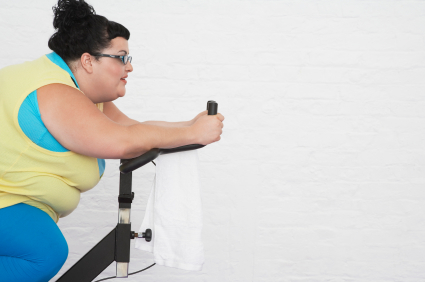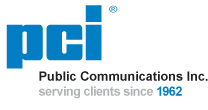Mary Carter And Other Agreements Should Be Disclosed To Juries
March 27, 2013
News and Views on Environmental & Toxic Tort Federal and State Legal Issues and Developments
March 27, 2013
 As a general proposition, a defendant at trial suffers unfair prejudice when the court does not permit the jury to learn of certain facts that, if disclosed, would reveal a witness’s bias or self-interest. If a witness with no apparent motive for lying gives strong testimony favoring one side at trial, that testimony may have a significant impact on the jury. It is for this reason that all potential bias or self-interest of both fact and expert witnesses must be vigorously explored during pre-trial discovery.
As a general proposition, a defendant at trial suffers unfair prejudice when the court does not permit the jury to learn of certain facts that, if disclosed, would reveal a witness’s bias or self-interest. If a witness with no apparent motive for lying gives strong testimony favoring one side at trial, that testimony may have a significant impact on the jury. It is for this reason that all potential bias or self-interest of both fact and expert witnesses must be vigorously explored during pre-trial discovery.
In Polett v. Public Communications, Inc., No. 1865 EDA 2011, slip op. (Pa. Super. March 1, 2013), a verdict for a whopping for $27.6 million in the Court of Common Pleas of Philadelphia County, Civil Division, was reversed on multiple grounds. However, for purposes of this article, we focus on the finding by the Superior Court that it was error for the trial court not to permit the jury to learn that plaintiff’s treating physician, Dr. Richard Booth, an orthopedic surgeon, had been a named defendant earlier in the litigation and had entered into a tolling agreement with the plaintiffs. Under such a tolling agreement, a plaintiff can await the outcome at trial and decide afterward whether to pursue the party with whom she had entered into the tolling agreement. Dr. Booth’s best protection against being sued at a later date was to ensure that the plaintiffs made a substantial recovery at trial. Is this self-interest? You bet!
By way of background, in mid-2006, Zimmer, a medical device manufacturer, launched the Gender Solutions Knee, a knee replacement device designed specifically for women. Zimmer hired Public Communications, Inc. (“PCI”), a marketing firm, to produce a sales video, which would include interviews and footage of patients who had undergone successful knee replacement surgery using the device. Plaintiff Margo Polett underwent successful bilateral knee replacement surgery. On account of her good surgical outcome, her treating physician, Dr. Richard Booth, recommended Mrs. Polett to Zimmer as a candidate to participate in Zimmer’s sales video.
Plaintiffs allege that following the videotaping, which involved Mrs. Polett riding on a stationery exercise bike, her condition worsened and she underwent four further surgeries in failed attempts to repair the damage that plaintiffs alleged occurred during the filming of the promotional video.
Dr. Booth admitted in deposition that the “sword of litigation” hung suspended above his head. Substantial evidence was developed during discovery that when Dr. Booth first gave his causation testimony, which supported plaintiffs’ theory of the case, he had a strong incentive to place  responsibility on the medical device manufacturer and the filming company and away from himself.
responsibility on the medical device manufacturer and the filming company and away from himself.
Due to his clear self-interest in presenting causation testimony favorable to plaintiffs, the Superior Court determined that the defendants should have been permitted to demonstrate Dr. Booth’s partiality as a doctor who faced the possibility of litigation; who did not think he was at fault; who did not want to alienate his patient; and who squarely placed repsonsibility for Mrs. Polett’s injuries on the filming company and the device manufacturer.
In so holding, the appellate court concluded that the probative value of the tolling agreement outweighed the danger of unfair prejudice. Although the use of a tolling agreement for impeachment purposes was a matter of first impression for Pennsylvania courts, other Pennsylvania courts had found that analogous agreements were admissible to show bias or prejudice.
Another type of agreement between a plaintiff and a defendant is referred to as a “Mary Carter agreement". These agreements are a means of effectuating a settlement with some but not all defendants in a multi-party lawsuit. Like the tolling agreement in Pollet, evidence of a Mary Carter agreement’s existence should be presented before the jury, but they are often shrouded in secrecy and never reach the light of day.
Mary Carter agreements usually incorporate the following basic elements although the terms vary from case to case:
1. the defendant in an multi-party lawsuit who enters into the agreement guarantees that the injured plaintiff will receive a certain amount, even if the plaintiff fails to receive a judgment against that defendant or the amount of the judgment obtained is less than the guaranteed amount;
2. the agreeing defendant’s liability, which is capped, can be reduced or even eliminated by increasing a co-defendant’s liability;
3. the agreement is kept secret from the jury absent court-ordered disclosure; and
4. the agreeing defendant remains in the lawsuit as a party.
For obvious reasons, Mary Carter agreements have been challenged as being unethical. Arguably, the agreement contravenes the canons of professional conduct concerning candor and fairness; conflicts of interest; unjustified litigation; and taking technical advantage of opposing counsel. Because Mary Carter agreements are collusive agreements between parties with supposedly adverse interests, they create an inherent danger of perjury.
Moreover, these agreements mislead the jury into thinking that the agreeing defendant has interests adverse to those of the plaintiff, when, in fact, the defendant may some times share in the proceeds of the plaintiff’s recovery. In my view, lawyers who enter into Mary Carter agreements are walking into an ethical minefield. In New York, these agreements are considered contrary to public policy and are not permitted..
But whether the agreement in question is a tolling agreement or Mary Carter agreement, the finder of fact should be fully apprised of any relevant information that might give rise to bias or interested testimony. It is discouraging that the Polett court seemingly failed to understand this basic premise of trial fairness.